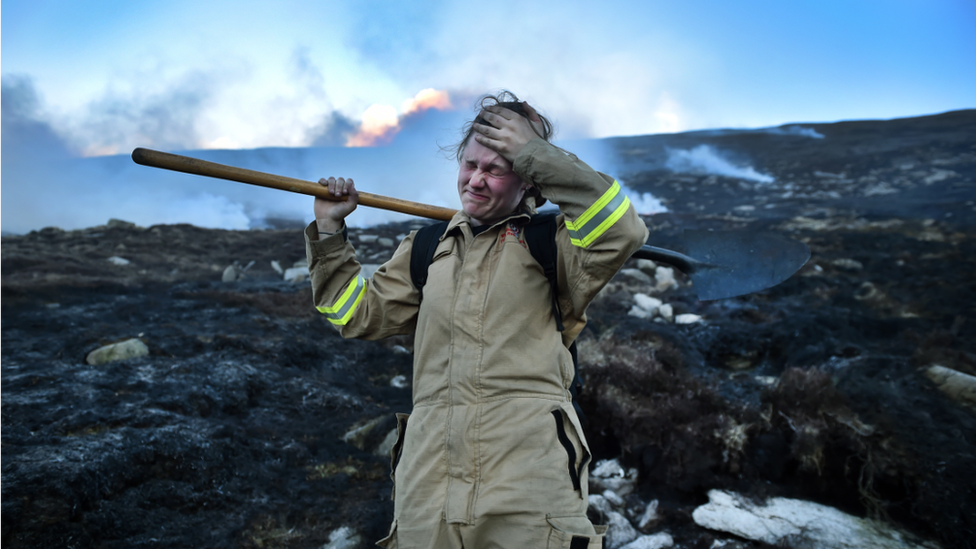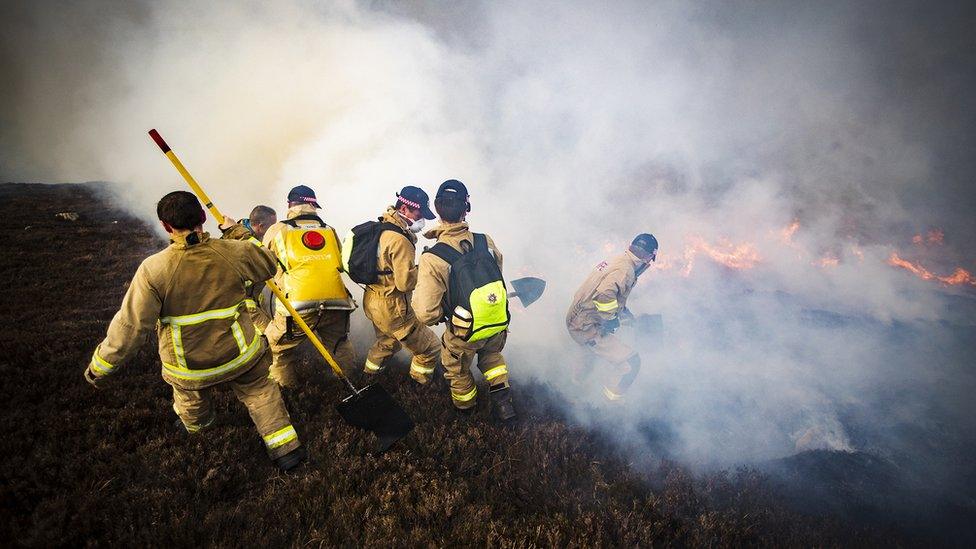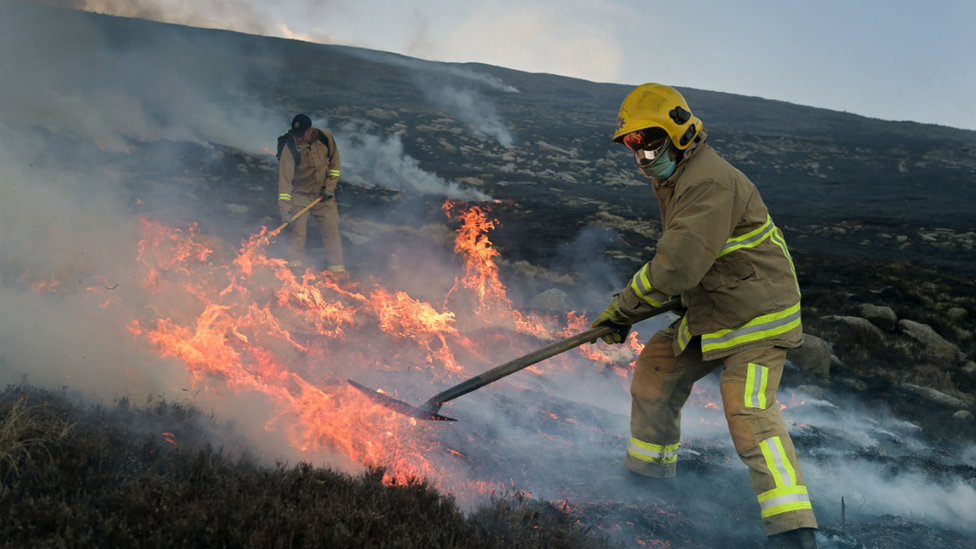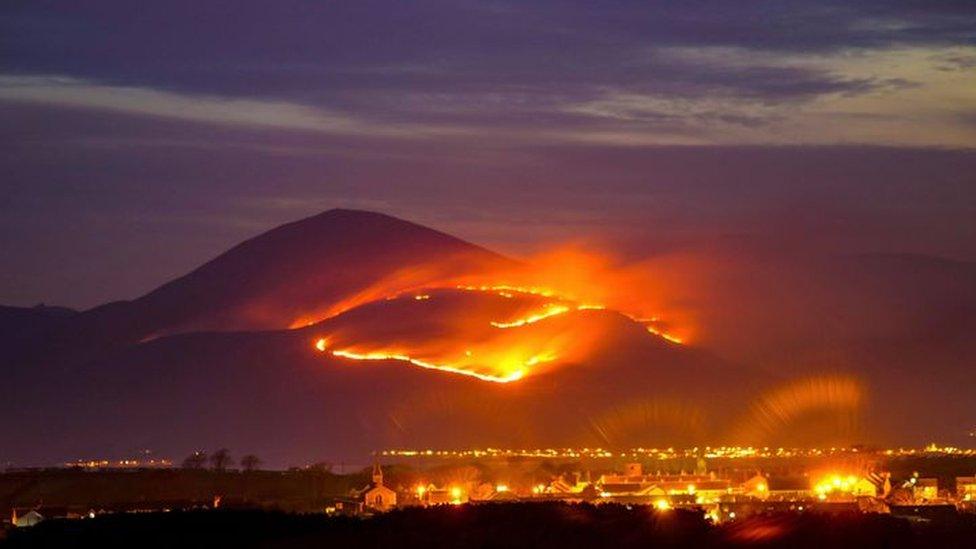Slieve Donard: Mourne Mountains fire recovery fund awarded £322k
- Published

This picture, which went viral, epitomised the arduous conditions faced by firefighters in the Mournes
Stormont funding of £322,000 has been committed to efforts to help the Mourne Mountains recover after some of the area was devastated by fire in April.
Environment Minister Edwin Poots said it would invest in future planning, equipment and habitat management.
More than 100 firefighters were involved in efforts to tackle the blaze on Slieve Donard, Northern Ireland's highest summit.
Mr Poots said "the scars of that weekend are still visible".
However, he added he was "encouraged to see some healing as well".
"Some plants and vegetation have sprung back to life and I have no doubt, that this fund, as well as the expertise of those in the National Trust, will help nurse the mountain back to health in the future," he explained.
Slieve Donard: How fire crews tackled "extreme conditions"
The minister said he visited the mountains after the fire in April and saw the "devastation it had caused to the extensive wildlife and biodiversity in the area".
Coastguard helicopters were involved in the multi-agency operation, which was scaled down after three days, helping to transport firefighters to remote areas to tackle the blaze.
At the time, Aidan Jennings, assistant chief fire and rescue officer, said it had allowed crews to "get a good aerial view of the fire spread, to inform our tactical firefighting approach and plan our resource deployments".
'Utterly devastating'
As well as Slieve Donard, the fire also affected Thomas Mountain and the Glen River Valley.
Concerns were raised about the short and long-term impact on plants and wildlife in the area, such as insects and ground-nesting birds.

Firefighters tackled the blaze over a number of days in April
Mr Poots said the funding, from the Environment Challenge Fund to the Mourne Wildlife Recovery Project, would also help an investment in equipment for both mitigation and response needs if similar wildfires happen in future.
The recovery project is being led by The National Trust, which is responsible for large parts of the mountain range.
The minister said wildfires can "hurt the natural environment, threaten lives and livelihoods and can obliterate the local wildlife".
"Of course, they are rarely a natural occurrence and are almost always started deliberately or recklessly," he continued.

Firefighters worked in challenging conditions on the mountainside in County Down
"It is everyone's responsibility to protect our natural environment - seeing it quite literally go up in smoke is utterly devastating."
Related topics
- Published23 April 2021

- Published24 April 2021

- Published25 April 2021
